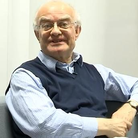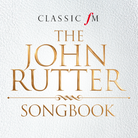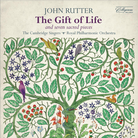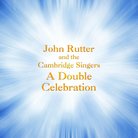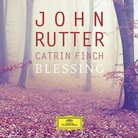John Rutter: Modest Maestro
Singers and audiences alike lap up the works of “Carol King” John Rutter but he remains humble amid the praise.
If you have ever sung in a choir, the chances are you will have chirruped your way through something by John Rutter. His carols are as common as mince pies at Christmas, and with nearly 200 works in the catalogue (100 of them recorded) translated into French, German, Dutch, Swedish, Finnish, Estonian, Russian, Japanese and Korean, his music seems to get everywhere.
But when we meet at the annual convention of the Association Of British Choral Directors (Rutter is vice-president) in Guildford, Surrey, the overwhelming impression of this prolific artist is of humility.
“Singing has always thrilled me,” Rutter says. “As a schoolchild, singing brought me more joy than anything. I was rather shy and awkward but choral singing gave me solace and confidence.”
A great deal has happened in the choral world since then. For one thing Rutter remembers the day when he was an undergraduate at Clare College, Cambridge and women were admitted into the choir.
“Everything changed overnight! The choir went from a rather growling male voice sound to having soaring sopranos. Suddenly everything became possible.”
But back in the 1960s and 70s when 12-tone serialism was de rigueur in Europe, it was in the US that Rutter’s music was most warmly received (he subsequently married an American).
“I feel at home in America because there is a great openness. People didn’t get too worried about ‘isms’ over there, so I could actually write tunes and use key signatures! But things have changed in the UK too and I think there is a much healthier climate for composers now than 40 years ago.”
What makes Rutter so popular?
“He is a brilliant communicator, in his conducting as much as his composing,” says Sarah Beedle, one of the Guildford event’s organisers. And as he leaps about the crowd with boundless enthusiasm it’s easy to see her point.
Ralph Allwood, director of music at Eton College, agrees: “I don’t think anybody has done what he has done for choral music. And his music is just a delight to sing – there are those searing melodies and always the kind of key changes that get you right in the gut.”
Rutter’s critics may say his music is sickly-sweet and derivative but it is an over-generalisation to say all of his work is singalong stuff. The Magnificat and Te Deum are more substantial works, and the harmonic language in Hymn To The Creator of Light, for example, leans towards an almost Brittenesque richness.
It is his talent for matching music to a particular occasion or group that has produced such a huge range of repertoire. To him, “it’s a bit like bespoke tailoring. You are trying to make a suit of clothes for somebody you have measured up to be worn at a specific event.” He adds, with a typical mix of self-deprecation and realism: “It may not necessarily be a path to greatness but at least it helps in arriving at something suitable.”
And that’s the crux of the matter. Rutter has made his career out of writing practical music for children, choral societies and churches rather than going for one-off high-profile works for the concert platform. It’s the people he wants to please, not the critics. The fact is that in a world where many composers write works “inaccessible” to the untrained ear, Rutter’s music goes straight to the listeners’ hearts. His Requiem, written after the death of his father, is a case in point.
“I don’t think you should start out by trying to be a crowd pleaser, but neither of my parents were musicians so I couldn’t explain music to them in technical terms,” he says. “Maybe I wanted to reach out more because of that. When I was writing the Requiem, I thought: ‘Why would I want to shut my own father out of this?’” The work proved so popular that it reputedly had 500 performances in the first six months of publication.
Writing the music is one thing, but for Rutter this has always been coupled with innate business savvy.
“In effect a composer is a small business of one,” he insists. “We haven’t been on a payroll since the 18th century. You have to make your own opportunities.”
He was quick to hook into the 1980s CD boom for which he specifically set up his “recording’ choir”, the Cambridge Singers, which makes discs on the label he created for it, Collegium Records. Collegium Publishing is the sister company that (alongside Oxford University Press) has produced numerous tomes, including all his own works and anthologies of other popular choral pieces.
If some say Rutter’s music wears too much of a smile, it also has the ability to provoke incredible outpourings of emotion and the composer receives a huge number of letters from people all over the world thanking him for his music and telling him how it has given comfort in times of distress.
“That’s not necessarily what music is for nor why one should write it, but it does make you feel that there is a lot to be said for being a composer,” he reflects. “It is one of the greatest rewards.”
His album, The Gift Of Music, premieres a piece of the same name. It turns out that Rutter was so moved by a letter he received from a lady whose husband was suffering from Alzheimer’s – they had sung together all their lives before he became ill – that he composed the piece for her. She had no idea until he wrote to tell her. The gift of music, indeed.



